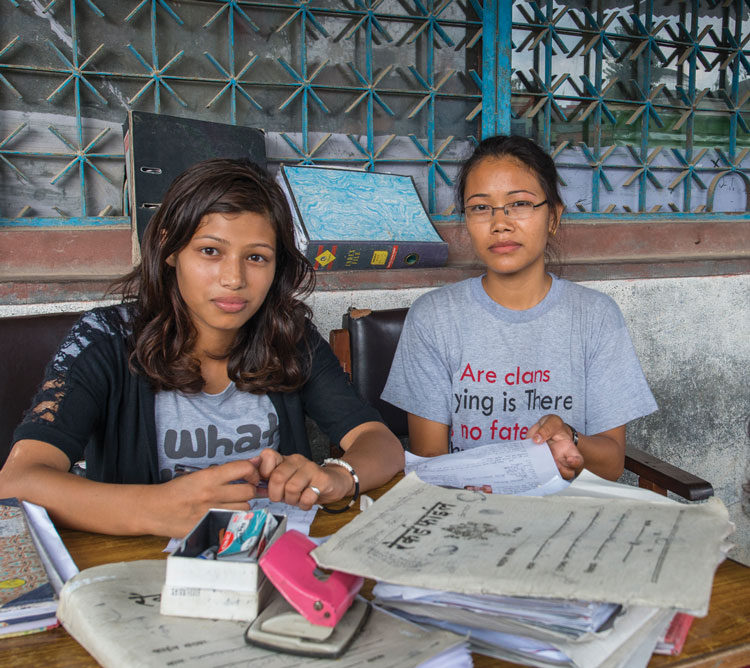Sex trafficking survivors in Nepal receive legal training

Teen trafficking survivors raised in rural villages train as paralegals at a police station in Kathmandu, Nepal. (Alison Wright Photography.)
In Nepal, gender violence and sex trafficking often go unreported. Survivors usually don’t know their legal rights, and they face community stigma and mistreatment by police in one of the world’s epicenters of human trafficking.
Samrakshak Samuha Nepal, or Sasane for short, is working to change that by empowering sex trafficking survivors through legal training and jobs. Sasane funds paralegal classes to help survivors become financially independent and serve as leaders and legal resources for victims and their community.
The participants are women and girls between the ages of 14 and 25. The paralegals are placed at police stations across Nepal with the goal of increasing access to justice. Their visibility garners the trust of those who traditionally have little confidence in law enforcement.
“The police realized there was an increase in reporting. Women and girls feel safe coming forward,” says Radha Friedman, director of programs for the World Justice Project.
Friedman says many people rescued from sex trafficking were tricked into it. Poor girls and women who thought they were starting a job or getting married were forced into prostitution, often cross-border. Nepal was one of a dozen recipients of a World Justice Project grant in 2014 that helped fund the ongoing program. The WJP was founded in 2006 as a presidential initiative of the American Bar Association and transitioned into an independent nonprofit in 2009. The ABA, which works with the WJP on rule of law issues, provided seed money, and Sasane secured additional funding.
About 45 paralegals graduate from the Nepal program each year. Sasane’s director, Shyam Pokharel, says additional funding is needed to continue and expand the program.
“The sex trafficking survivors are legally empowered,” Pokharel says, “and the legal knowledge has been shared [with] the paralegal’s family, relatives and friends,” compounding the benefits.
Friedman also says Sasane is having a real impact on the communities it serves. She adds that thousands of women have been helped by the paralegals, who assist with filing complaints, providing legal services and rescuing other women from abuse and sex trafficking.
This article was published in the March 2018 issue of the ABA Journal with the title "Sex Trafficking Survivors Get Legal Training: Nepalese paralegals increase access to justice."
Write a letter to the editor, share a story tip or update, or report an error.


